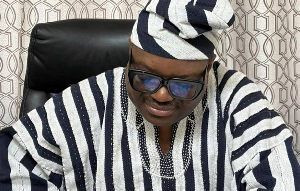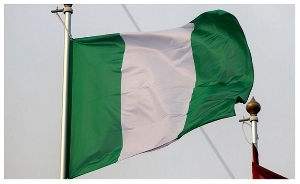The unfolding accounts about Osagyefo Dr Kwame Nkrumah, the first Prime Minister and President of Ghana are quite fascinating even though history hadn’t been kind to him, particularly, his birthplace in certain ways.
Like many rural boys, Nkrumah’s formative year was a carefree one—living in a bush, around the sea, and enduring difficult moment with his parents in Nkroful, a small village in the Nzema area.
When Nkrumah became adult, he suffered rejections, betrayals, arrests, imprisonment, assassinations including a coup d’état. Yet, his background didn’t deter him from realizing his dreams for his nation.
Indeed, Nkrumah’s accomplishment is revolutionary, and I don’t intend to bore readers with all that. However, in this article, my focus is to explore just one aspect, that is, his leadership, vis-à-vis, the missing link about his role as a father of the nation. Further, I shall examine the implication the role has on Ghanaian politicians, particularly, parliamentarians.
Of primary import, somewhere in 1951 - that’s exactly 69 years ago - Mr Baako of blessed memory, while debating a motion on the floor of parliament to seek lawmakers’ approval to honour Nkrumah on his 52nd birthday anniversary, has remarked that: “It was said of Aggrey that the man is a saint; let it be said of Nkrumah that the man is a God-sent, damn his race.”
But now, for this article, I’ll comfortably say of the venerable Nkrumah that he's a God-sent; damn his role as an absent father.
By absence, I don’t imply Nkrumah’s death, since death is a different psychological event. However, this absence describes a living circumstance.
Here, I use the notion to indicate a phenomenon where Ghana as a child lived part or all of its childhood (I’m referring to the immediate post-independence Ghana) in a house without her biological father, because probably the parents and children have split up or never lived together.
To buttress the above point, George P. Hagan in his work, Nkrumah's Leadership Style—An Assessment from a Cultural Perspective, admitted that the style of leadership which Nkrumah developed as an international statesman departed much from the style of a regular father, which finds expression in the obligation of a traditional leader.
I couldn’t agree with him more because there’s a Ghanaian proverb that says in the absence of the cat the mice come out to play. That’s to say a father doesn’t spend much time outside, he stays at home.
Justifiably so, the less attention Nkrumah gave to domestic issues was what has eventually increased the popularity of his political opponents, thereby contributing to his unpopularity.
Whether true or untrue, in some literature it was recounted that Nkrumah was so international in his dealings that more often than not he communicated to his children (the people of Ghana) from airport gangways on his way to and from a foreign country.
And istead of playing the good father by balancing his trips abroad with his stay at home, it became uneasy for his children to meet him face-to-face.
Even more unusual was the fact that his officials could hardly reach him except at the airport. Schoolchildren couldn’t set their eyes him except along the street as he met and drove past with international dignitaries.
There’s an adage that when beads break in front of elders none gets lost. Woefully, Nkrumah was lost in global assignments so much that he failed to promote the quality of father-child relation that would erase the scar that was left behind by our colonizers. To this end, he unable to give ear to the burning issues at home and provide fatherly care at the time his children needed him most.
As many others have shown, I find Nkrumah's father character a bit baffling. Even though we can’t go into the proximate causes now, it’s quite surprising to note how Nkrumah, a leader who’s spent a good time on political organizing; a man who’s skilled in synthesizing traditional aspects of leadership with modern thinking; a man who’s desired to pursue a new African democratic culture without his people feeling isolated suddenly turned his back on those ideals.
Throughout our political history up to the current fourth republic, psychological, social and economic harms of father absence still persist. Like Nkrumah, a lot of our politicians, particularly, lawmakers can’t succeed in balancing well their functions in the house of parliament with other constituency obligations. Always, their newfound political crafts are getting them separated from the people in unfortunate ways.
In every way, Nkrumah was a strong, discrete and natural leader. But a wandering child, they say, doesn't witness her mother's funeral.
Unfortunately, on the occasion of Nkrumah’s 111th anniversary, many politicians in Ghana, particularly, members of parliament (MPs) who’re fathers over constituencies, today, continue to face the same challenges of domestic unpopularity.
Just as it became late for Nkrumah who regretted his domestic mistakes on his way to Hanoi, the same way I think it’s getting late for many MPs now, as electorates already have their minds made up to show some of them the exit in the coming parliamentary elections in December 2020.
Opinions of Tuesday, 6 October 2020
Columnist: Komla Lokoe
Kwame Nkrumah, lawmakers and the absent father syndrome
Entertainment

Blackmail Saga: Court remands Showboy, case adjourned
Opinions










